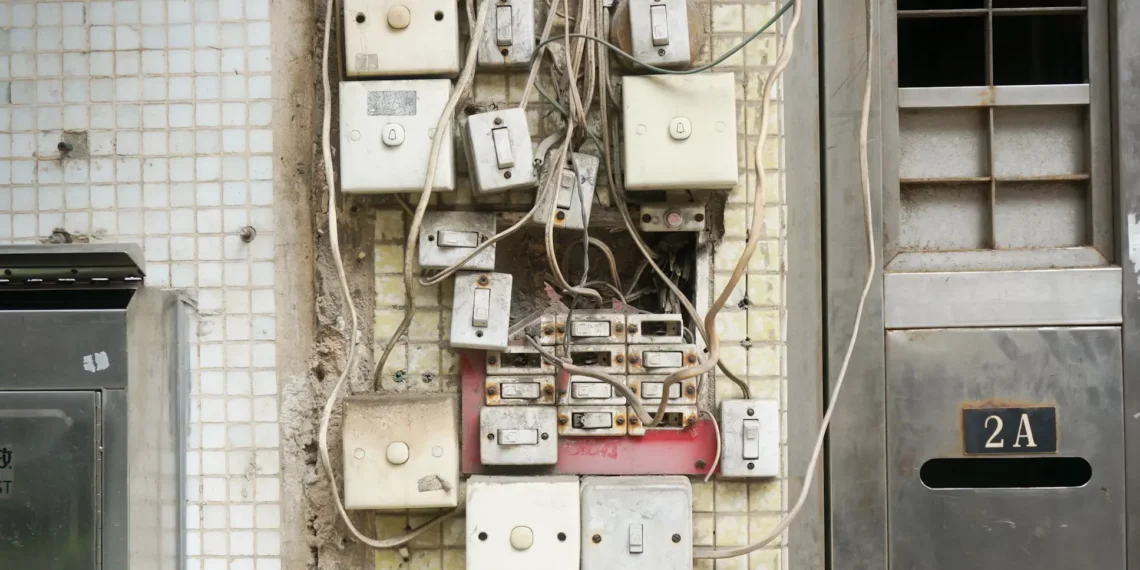People don’t often realize how much they rely on electricity until the power goes out. Yet, dealing with a faulty circuit breaker may be worse than a mere inconvenience — it could come with severe risks for your home and safety.
It’s crucial to pay attention to when your home’s electrical system is acting up. Otherwise, you may face a house fire, property damage or personal injury. Here are six faulty circuit breaker symptoms to address.
Age
One of the first warning signs of needing to replace a circuit breaker is its age. Generally, they have a life span of 25-40 years before becoming a fire hazard.
If you need to determine the age of your breaker box, check its label. You can usually find a date or serial number to contact the manufacturer. Otherwise, consider the age of the house, particularly if it looks older.
Frequent Tripping
The last thing anyone wants is to trip the power when plugging in their hairdryer. While short-circuiting occasionally is normal — especially if many appliances are plugged in — frequent tripping could signal something’s amiss.
A faulty circuit breaker might not be able to handle the electrical load or have poor wiring. It could also just be on its last leg. Regardless, it is essential to pay attention to how often you trip the breaker and what you’re doing as it happens.
Flickering Lights
Flickering lights could mean many things — they might start going off during a bad storm, or you may need to just twist a loose bulb back in its socket. However, it could also signify the circuit is close to overloading, especially when turning on several high-powered devices.
Incorrectly installed or outdated wiring might also overheat the breaker, increasing your risk of a home fire. Flickering could be a sign of more serious switchboard or electrical issues in your home, which requires an electrician’s inspection.
Burning Smell
Did you know 13% of residential fires are due to electrical problems and defective equipment? Your circuit breaker could be overheating or melting if you smell something burning.
A burning odor indicates the need for immediate replacement. The heat may melt the insulating material around the wires if left unaddressed.
Physical Damage
Although your breaker isn’t going to appear pristine if it’s older, physical damage is among the most concerning faulty circuit breaker symptoms. Obvious indications of damage include scorch patterns — which suggest the wires have melted — or frayed wires. Otherwise, look for other signs of deterioration like corrosion, rust, dents and cracks around the breaker.
Buzzing Sounds
Don’t ignore unusual noises coming from the circuit breaker, as they could mean a range of minor and more extreme troubles with your electrical system. For example, while a soft humming sound is nothing to worry about, loud humming could mean the breaker is damaged. Meanwhile, hissing could indicate overheating.
Sounds with sparks are particularly hazardous and may mean a wire is loose or damaged. An electrician can help with this type of repair.
Can You Replace a Circuit Breaker Yourself?
Tinkering with electricity is highly dangerous without professional training or experience. Likewise, a circuit breaker must be rewired correctly to prevent a fire or electrocution.
Although a circuit breaker isn’t as difficult to replace as an entire electrical panel, you still put yourself at risk of shock. For example, shutting off the main breaker doesn’t impact incoming power service terminals, meaning they’ll still transfer a deadly voltage if you touch it.
A licensed electrician has the proper training and knowledge of the National Electrical Code. They also understand which permits to pull and will work with your local electrical supplier to ensure correct installation. Their expertise will protect your family from the perils of a faulty circuit breaker and prevent future costly repairs.
A Working Circuit Breaker Makes a Safer Home
A lot can go wrong when you have a broken circuit breaker. You don’t just have to endure a few outages but also the safety hazards associated with electrical malfunctions. Be smart about handling a broken panel, and always look for faulty circuit breaker symptoms to ensure your household’s safety.









